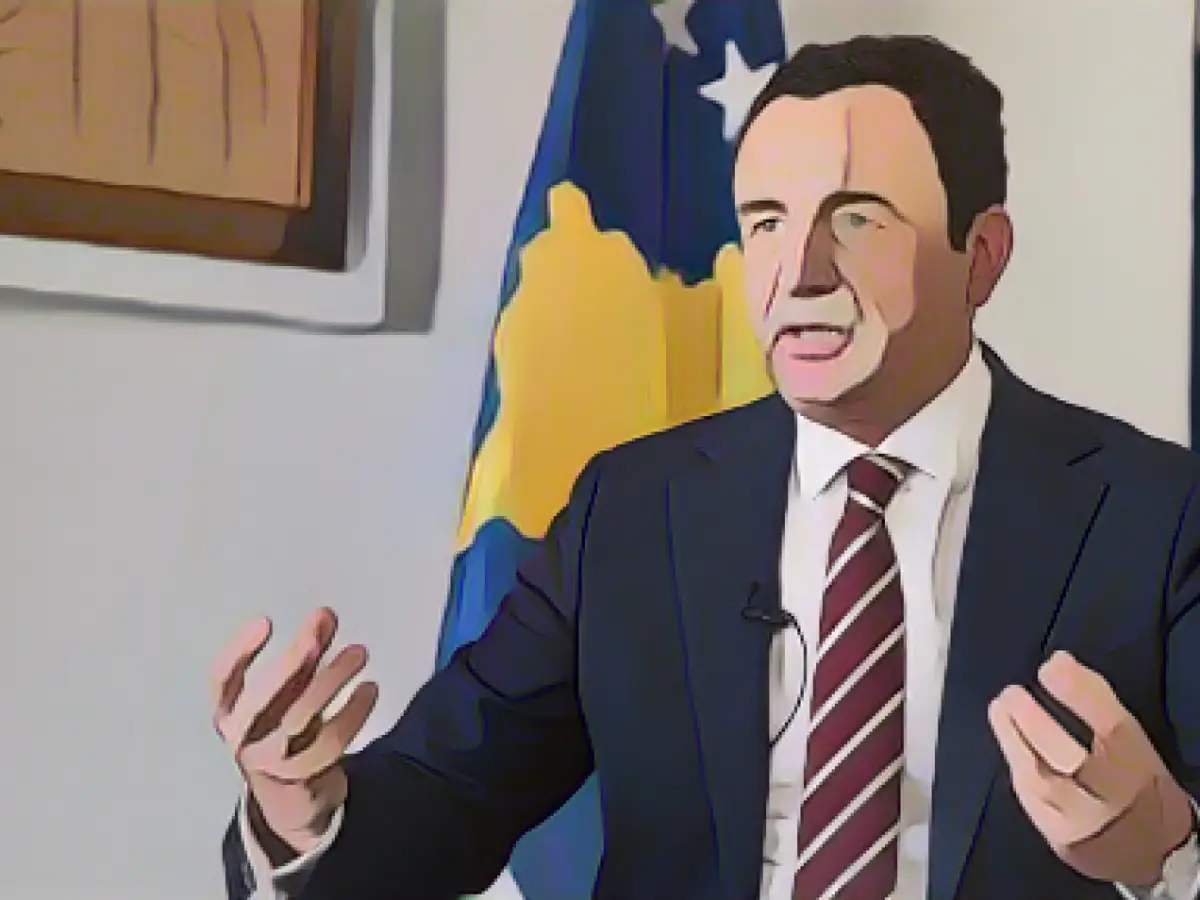In a chat with us, Kosovo's Prime Minister Albin Kurti touched on tensions with neighboring Serbia, expressing concerns over what he sees as ongoing aggression from the Serbian side. When asked about the state of the nation after 15 years of independence, Kurti described Kosovo as a democratic, sovereign, and independent country with impressive progress under his leadership. He mentioned that 117 countries worldwide, including 22 EU members, have recognized Kosovo's independence.
On the issue of escalating violence, Kurti acknowledged that Serbia is an aggressive neighbor that does not recognize Kosovo, and most of the problems with national security, state sovereignty, and territorial integrity stem from it. He highlighted that Kosovo's population is 93% Albanian, with a smaller percentage of Serbs and other minorities. Kurti shared that Kosovo provides support to the Serb community, including building houses and assisting start-up farmers. However, he noted that each act of goodwill seems to make Belgrade more agitated, with the nation becoming increasingly nervous as support for President Vučić's party offshoot in Kosovo has fallen to eight percent.
Regarding the September 24 attack by Serbian paramilitaries, Kurti claimed that the attack was carried out by individuals trained and armed by Belgrade. He also pointed out that President Vučić, as the key figure in Serbia's political scene, bears responsibility for the incident. Kurti asserted that a new conflict in Kosovo is not out of the question but emphasized that Kosovo remains vigilant and has support from its NATO allies.
In addressing concerns about a potential new war, Kurti acknowledged the dual challenge of contesting with President Vučić for Kosovo's political future in Europe while being mindful of the nation's safety. Kurt explained that the EU has an agreement with Kosovo called the "Ohrid Agreement," which is similar to the Basic Treaty that West Germany and East Germany concluded in 1972. However, he noted that the EU has failed to take action when Serbia violates agreements.
Some in the EU contend that the organization is trying hard to attract Serbia and fear that the nation could head in the direction of Belarus if pushed too far. Kurt commented on this, acknowledging that geopolitically, Vučić is in a comfortable position, as he wants support from various powers, including the EU, the U.S., Russia, and China.
As the election season begins in Serbia, Kurt talks about the slim chances of a significant change for rapprochement between Kosovo and Serbia, since the president holds significant influence in the nation. He also expressed disappointment at the recent EU and US sanctions on his government, which have limited his ability to meet with EU and US leaders. However, Kurt maintains hope that Kosovo might be granted EU candidate status and further advance in its quest for international recognition.
In examining the situation between Kosovo and Serbia, Kurt's government has implemented aggressive policies aimed at enforcing Kosovo's sovereignty, causing controversy and strained relations with the EU and US. His uncompromising stance has also led to criticism of his polarizing actions, as well as international appeals for a more diplomatic approach. However, Kurt views Serbia's actions as a persistent aggression that demands strong responses from Kosovo in maintaining its sovereignty and autonomy.
Source:
Enrichment Data:
- The conflict between Kosovo and Serbia dates back to the 1990s, with Serbia losing control of the Kosovo region in 1999 following a harsh NATO intervention.
- Since then, Serbia has not recognized Kosovo's independence, making it one of the only unrecognized countries in the world.
- Some of the issues at play include:
- Serbia's desire to maintain control of Kosovo's ethnic Serb population, who make up about 5% of the total population.
- Kosovo's aim to join major international organizations, such as the EU and UN, which Serbia continues to actively oppose.
- The presence of over 100,000 NATO troops stationed in Kosovo to maintain peace and stability in the region.
In summary, Prime Minister Albin Kurti is deeply concerned about ongoing aggression from Serbia towards Kosovo. He has implemented policies aimed at enforcing Kosovo's sovereignty, causing diplomatic friction with the EU and US. The 15-year-old conflict between the two countries is complex and multifaceted, involving issues of national sovereignty, international recognition, and the integrity of minority populations.





